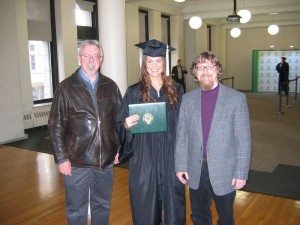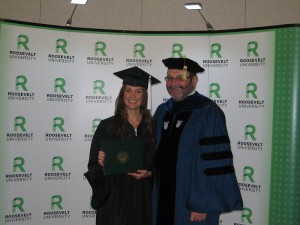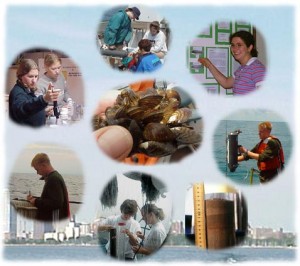The phrase “urban agriculture” might seem like an oxymoron. But this burgeoning social and economic movement is revolutionizing food production, land use, K-12 education, and community development in big cities like Chicago, Detroit, and Oakland. But smaller cities like my hometown of Joliet have an opportunity to vault to the vanguard of urban agricultural innovation, if they just seize the day.
This spring some of my Roosevelt University students and I work Wednesday afternoons at the Chicago Lights Urban Farm, a small but incredibly productive operation in the Cabrini-Green neighborhood on Chicago’s Near-North Side.
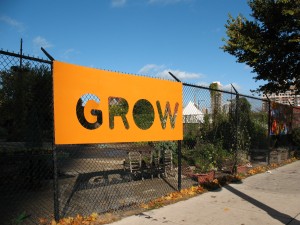
This half-acre oasis of green built atop an abandoned basketball court started as a community garden back in 2002. Now, the Chicago Lights staff, volunteers, and local youth interns produce over 100 kinds of vegetables each growing season from this hitherto derelict property.
The Cabrini-Green farm is thus a vital source of freshly grown, organic produce in a place where walking to the nearest supermarket can entail crossing a dangerous gang boundary. It’s also a training ground for local youth in need of practical job skills; a demonstration site for sustainable agricultural techniques; a place of peace in an area pockmarked by poverty and violence; and a means of reconnecting urban folk to the natural world.
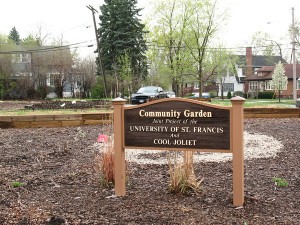
Here in Joliet, various groups have jump-started impressive urban agriculture initiatives lately, including the Cool Joliet / USF community garden project on the near West Side, the Joliet Park District’s new organic community garden opening up on McDonough Street on the far West Side; and Pilcher Park’s community/school garden on the East Side.
One remarkable opportunity waiting to bloom sits smack dab in the city’s center: the huge vacant lot located just west of Joliet Township High School’s Central campus and east of Silver Cross Field. Formerly the site of Rendel’s auto-body repair shop, this expansive grassy parcel is now owned by the high school district and has a yet-to-be-determined destiny.
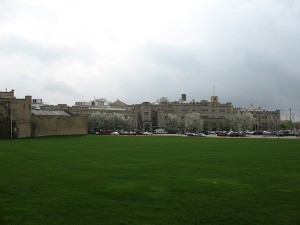
The school district should think big about what this property could be. One ambitious but exciting option is to create an education-focused urban agriculture enterprise for JT Central students that could start small, but eventually scale up and diversify to achieve educational and social impacts that would be unprecedented within the greater Chicago region.
Imagine students, teachers, and staff just walking outside to the farm next door and doing meaningful physical work growing and harvesting organically produced food. Such projects could be fully integrated with the school’s science, social studies, phys ed, business and health curricula, so that students learn from the ground up the ecological, economic, and social benefits of urban agriculture. Imagine their fresh local produce being donated to local food pantries, sold by student entrepreneurs at the Joliet farmers market, and eaten by students in Central’s cafeteria.
I know — it sounds pretty far-fetched. But then again, is it any crazier than believing you can grow food on top of an old basketball court in Cabrini-Green?
This essay was published as “The Revolution of Urban Agriculture” in the 29 March 2012 edition of the Joliet Herald-News. See more pictures of Joliet Central’s open space and the Cool Joliet / USF community garden. Read about the High School for Public Service Youth Farm in Brooklyn, NY, which began in 2010 as a partnership with the nonprofit urban ag organization, bk farmyards.

